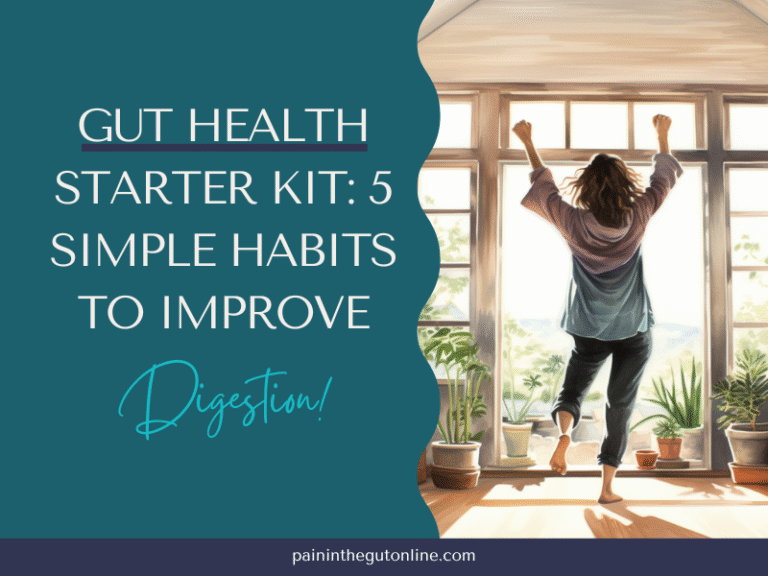BALANCING HORMONES
8 min read/ 1632 words
Balancing hormones for better gut health is crucial because these hormonal imbalances can lead to digestive issues. And guess what? Poor gut health can exacerbate hormonal problems. It’s a vicious cycle. But, trust me, it doesn’t have to be this way.

Today, we’re diving into a topic that’s close to my heart (and hormones): balancing those pesky hormones naturally. Because, let’s face it, when our hormones are out of whack, life can feel like a never-ending rollercoaster.
So, grab your favorite beverage, get comfy, and let’s chat about how to get those hormones back in harmony.
Table of Contents
Understanding Hormonal Imbalance
First off, what the heck is a hormonal imbalance? Simply put, it’s when there’s too much or too little of a hormone in your bloodstream. Even tiny changes can cause big issues, affecting everything from your mood to your weight.
Common symptoms include fatigue, acne, weight gain, and irregular periods. Ugh, right? But don’t worry, I’ve got your back.
The Role of Nutrition in Hormonal Balance
1. Healthy Fats Are Your Friends
A fiber-rich diet, healthy fats, and lean proteins, which are all micronutrients or nutrients your body needs in large quantities, can support hormone balance and gut health. Healthy fats, like those found in olive oil, are essential for hormone production and can improve insulin resistance.
- Fiber: Whole grains, legumes, fruits, and vegetables contain large amounts of fiber, which helps the body maintain a healthy gut microbiota.
- Healthy Fats: Omega-3 fatty acids from fish, flaxseeds, and walnuts help reduce inflammation.
- Lean Proteins: Protein sources like chicken, fish, and plant-based proteins support muscle health and overall metabolism.
2. Manage Stress: Take a Chill Pill
Chronic stress can wreak havoc on your hormones, especially cortisol. High stress levels also impact the hormones that regulate appetite. Incorporate stress-reducing activities like meditation, deep breathing, or even just a good laugh with friends.
You can, however, manage stress by practicing the following self-care activities:
- Mindfulness and Meditation: Both these practices help reduce stress and promote relaxation. Learn more here.
- Regular Exercise: Physical activity helps lower cortisol levels and improve mood. Exercise can reduce insulin levels and the risk of chronic conditions like heart disease, diabetes, and obesity. Find something you enjoy, whether it’s yoga, dancing, or a brisk walk, and make it a habit Read more about movement for gut health here.
- Adequate Sleep: Quality sleep is essential for all aspects of health. Poor sleep has been linked to several health issues. Aim for 7-9 hours of quality sleep each night to keep those hormones happy
3. Include Probiotics and Prebiotics
Probiotics and prebiotics can help you maintain a healthy gut.
- Probiotics: These are good bacteria you can find in fermented foods like yogurt, kefir, sauerkraut, and kimchi. Probiotics can help replenish the beneficial bacteria in your gut.
- Prebiotics: These are resistant starches you will find in foods like garlic, onions, asparagus, and bananas. Prebiotics feed the good bacteria in your microbiome in order to provide the necessary fuel for them to survive and thrive.
4. Avoid Endocrine Disruptors
Endocrine disruptors are chemicals that can interfere with hormone function. They are found in household products, plastics, and even some foods. Opt for natural cleaning products and be mindful of what you’re putting in and on your body.
- Choose Organic: Opt for organic produce to reduce exposure to pesticides.
- Use Glass Containers: Store food in glass containers instead of plastic to avoid chemicals like BPA.
- Read Labels: Avoid products with parabens, phthalates, and other harmful chemicals.
5. Regular Physical Activity: Move That Body
Regular physical activity benefits heart health and improves hormonal balance. Exercise can reduce insulin levels and the risk of chronic conditions like heart disease, diabetes, and obesity.
Find something you enjoy, whether it’s yoga, dancing, or a brisk walk, and make it a habit.
Here’s the science behind it:
- Enhancing Metabolism: Regular activity boosts metabolism and supports thyroid function.
- Reducing Inflammation: Exercise decreases overall inflammation, which benefits gut and hormone health.
- Improving Insulin Sensitivity: Physical activity helps maintain blood sugar levels.
Specific Hormones and Their Impact on Gut Health
Key Hormones Influencing Gut Health
- Cortisol
- Insulin
- Estrogen and Progesterone
- Thyroid Hormones
- Ghrelin and Leptin
Cortisol
Cortisol is a stress hormone, which is produced by the adrenal glands in human beings.
Increased cortisol can cause:
- Increased Gut Permeability: Commonly referred to as “leaky gut,” is a condition that allows toxins to enter the bloodstream, causing inflammation.
- Altered Gut Motility: This can lead to symptoms like diarrhea or constipation.
- Reduced Blood Flow to the Gut: Slows digestion and affects nutrient absorption.
Ways to manage your cortisol levels:
- Practice Relaxation Techniques: Yoga, deep breathing, and progressive muscle relaxation can help.
- Ensure Adequate Sleep: Prioritize your sleep hygiene to maintain healthy cortisol rhythms.
- Limit Caffeine and Sugar: These can spike cortisol levels and screws gut health.
Insulin
Insulin, produced by the pancreas, helps your body regulate blood sugar.
Insulin resistance can lead to:
- Increased Inflammation: Affecting gut health and contributing to inflammatory conditions like IBS.
- Altered Gut Microbiota: Dysbiosis can result from and contribute to insulin resistance.
- Impaired Digestion: Poor blood sugar control can slow digestion and may affect nutrient absorption.
Ways to improve your insulin sensitivity:
- Eat a Balanced Diet: Focus on whole, unprocessed foods with a low glycemic index.
- Exercise Regularly and Consistently: Practice aerobic and strength-training exercises.
- Maintain a Healthy Weight: Excess weight, especially around the abdomen, can worsen insulin resistance.
Estrogen and Progesterone
Fluctuations in estrogen and progesterone, mainly during menstruation, pregnancy, and menopause, can affect gut health.
Imbalances can cause:
- Bloating and Water Retention: Often experienced during the different stages of the menstrual cycle. (Boy, you’re not kidding!)
- Constipation or Diarrhea: Due to changes in gut motility. (Ugh, am I right?)
- Altered Gut Microbiota: Hormonal fluctuations can alter the balance of gut bacteria.
Ways to balance your estrogen and progesterone:
- Eat Phytoestrogen-Rich Foods: flaxseeds, soy, and lentils.
- Avoid Xenoestrogens: found in plastics and some personal care products.
- Support Liver Health: your liver metabolizes estrogen. You can support your liver by eating cruciferous vegetables like broccoli and Brussels sprouts.
Lifestyle Changes for Long-Term Hormonal Balance
Balancing hormones for better gut health involves making sustainable lifestyle changes. Gut health is a way of life, not a quick fix. It comes down to five areas you should focus on to maintain a balanced gut.
Here are some key areas I like to call the focus on five:
1. Consistent Sleep Patterns
Establishing a regular sleep routine is vital for hormone regulation.
Aim for:
- 7-9 Hours of Sleep per night to support hormone production and balance. (You can do it!)
- Consistent Sleep Schedule: Going to bed and waking up at the same time each day.
- Create a Calming Bedtime Routine to signal your body that it’s time to wind down.
2. Hydration
Keeping your body hydrated is essential for digestion and hormone function. Here’s a fun fact: If you feel thirsty, you’re already dehydrated!
Try these tips:
- Drink Plenty of Water: 8 glasses minimum per day.
- Avoid Sugary Drinks: These can mess with your insulin levels. (I’m looking at you, Red Bull!)
- Eat Hydrating Foods: cucumbers, watermelon, and oranges can boost your intake.
3. Nutrition: Healthy Fats
Nutrition is the obvious one. Don’t shy away from fats; just make sure they’re the good kind, which are necessary for hormone production.
Include:
- Omega-3 Fatty Acids: Found in fish, chia seeds, and flaxseeds.
- Monounsaturated Fats: Like those found in avocados, olive oil, and nuts.
- Avoid Trans Fats: Man-Made fats found in many processed foods and baked goods.
4. Stress Management
Reducing or managing your stress can help reduce cortisol levels to balance your hormones and improve your health.
Try these stress busters:
- Learn to say no. If your plate is full, know it’s okay to refuse to take on anything more. Your health depends on your ability to stand up for yourself.
- Take a Break: Be sure to set aside time for relaxation. Try using the Pomodoro Method to help you take regular breaks when working for long periods of time.
- Be Creative: Working on a hobby, journaling, coloring, or even playing music are all great ways to relax.
5. Movement
Regular and consistent movement has many health benefits, including weight management, increased endurance, hormone balance, and strengthened muscles. It may even help you live longer.
Try these easy ways to sneak more movement into your day:
- Try a Health Tracker: Knowing how many steps you take can help you improve your movement.
- Park Farther Away: This is a super easy way to increase your steps.
- Take the Stairs: Skiping the elevator and opting for the stairs can elevate your heart rate and get you moving more.
Supplements to Consider
Following a gut-healthy diet should provide you with a good balance of nutrients; however, it’s good to know that certain supplements can support hormone balance and gut health when needed:
1. Probiotics:
Support gut health by introducing beneficial bacteria. It improves digestion and helps with issues like IBS.
2. Magnesium
Reduces Stress, which can lower cortisol levels. Supports digestion by relaxing muscles in the digestive tract.
3. Omega-3 Fatty Acids
Anti-inflammatory, which benefits both gut and hormone health. Supports insulin sensitivity and overall metabolic health.
4. Vitamin D
Supports immune function, which is closely linked to gut health. It regulates mood, which can be affected by hormonal imbalances.
Conclusion
Balancing hormones for better gut health requires a holistic approach that includes diet, stress management, regular physical activity, and avoiding endocrine disruptors. By making mindful choices, you can support your body’s hormonal health and overall well-being.
Maintaining a healthy gut is not just about diet.
It involves a targeted approach to lifestyle and well-being. By nurturing your body’s hormonal balance, you can promote a healthier gut, improve digestion, and achieve a higher quality of life.
Unlock the secrets to a healthier gut and hormonal balance with our Free Quiz: “What’s Missing from Your Gut Health Routine!” This quiz is designed to help you pinpoint exactly where you are lacking so you’ll know exactly what to work on to improve your gut health and hormones.







